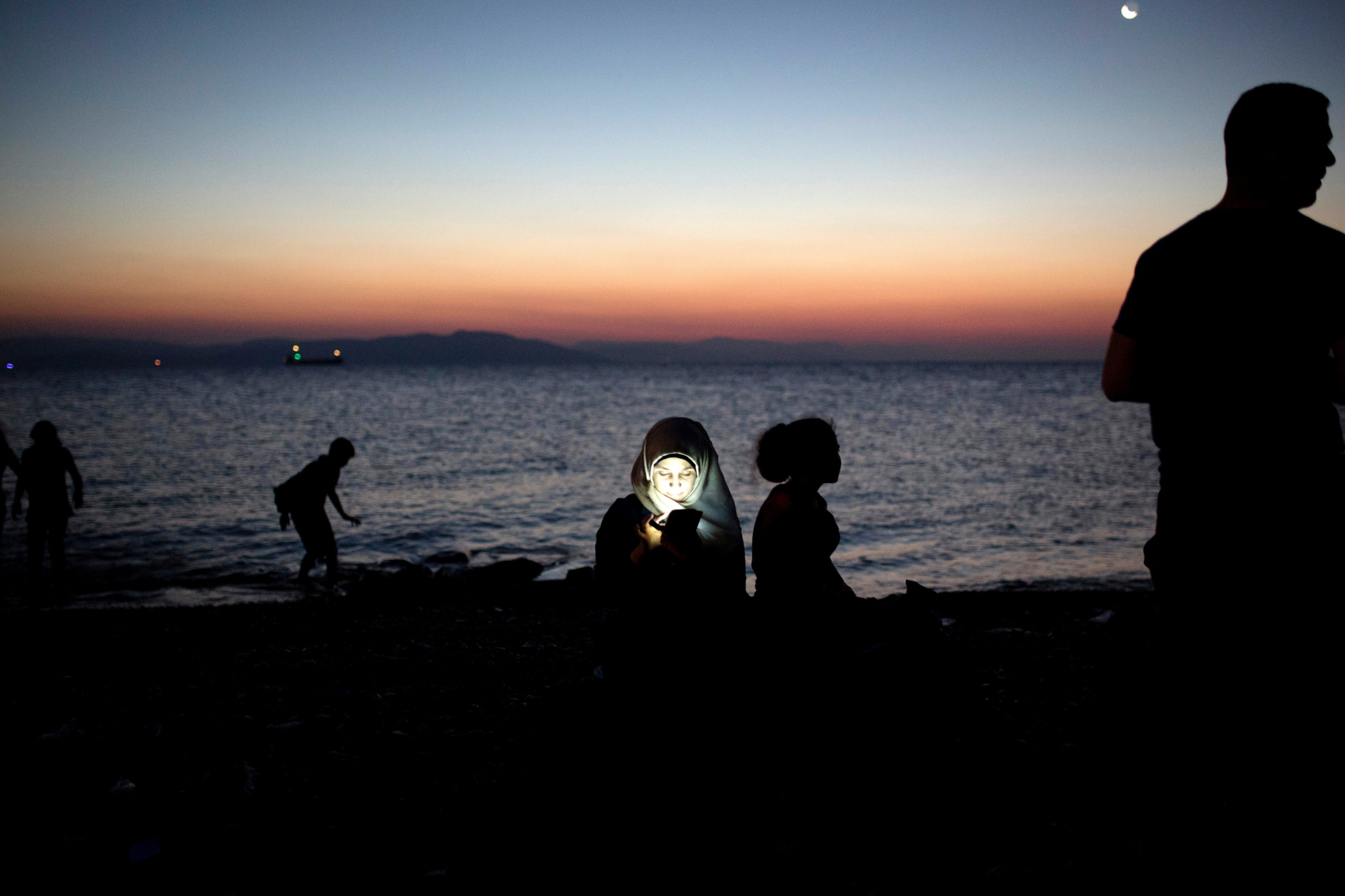Amnesty Secretary General Kumi Naidoo in Lesvos as situation on islands reaches crisis point
Refugee women raise their voices for change and set out ten demands for European leaders
Female refugees and asylum seekers are coming together to fight against horrific abuses, including sexual violence, and to demand a better life in Europe, Amnesty International reveals in a new report published today.
I want to decide my future: Uprooted women in Greece speak out, reveals the perilous journeys made by women and girls and the terrible conditions and dangers they face when they finally arrive on the Greek islands or mainland. It also highlights the tremendous resilience and strength these women have shown in overcoming adversity.
“The abject failure of European governments to open safe and legal routes to refugees fleeing war is putting women and girls at increased risk of harrowing abuses,” said Kumi Naidoo, Secretary General of Amnesty International.
“And yet despite the challenges and against all odds, these women are finding the strength to speak out. Those in power must listen to their voices and act on their words. In these times of #MeToo and #TimesUp, we are proud to stand with our uprooted sisters in Greece to say, ‘We see you, we hear you, we believe you, and we will fight with you’.”
Amnesty has spoken to more than 100 women and girls living in camps and other accommodation in and around Athens and on the Greek islands since March 2017. Based on their insights, today’s report presents ten clear demands to tackle violations of human rights experienced by women refugees.
Women travelling to Europe are at particular risk of physical, verbal and sexual harassment by smugglers.
“When the European governments closed the doors to refugees, we women were more exposed to the abuses of the smugglers,” one Syrian refugee told Amnesty International. “You cannot ask the police or anyone else for help because you are ‘illegal’. Smugglers take advantage of that.”
Even when they reach European shores, their ordeal does not end. The majority of refugees and migrants arriving in Greece are now women and children, constituting just over 60 percent of arrivals this year. Yet due to a migration deal struck between the EU and Turkey in March 2016, those arriving on the Greek islands find themselves trapped in terrible conditions in squalid EU-sponsored camps.
Overcrowding is at a crisis point with more than 15,500 people living in five island camps which were designed for around 6,400 people. Thousands of people, including many with specific needs such as the disabled and babies, sleep in tents around the main camp areas. Lack of sanitation, insufficient clean drinking water, streams of raw sewage and infestations of mice and rats are common in all camps.
“Every day is getting worse… The camp is so cramped,” said one woman in Moria camp in Lesvos, which is currently two-and-a-half times over its capacity for 3,100 people.
Whilst all refugees and migrants experience the consequences of these conditions, women and girls suffer unique consequences. Several pregnant women described to Amnesty International having to sleep on the floor and having very little, if any, access to antenatal care. Last month, a woman reportedly delivered her baby in a tent in Moria camp without any medical support.
Lack of locks on bathroom doors and poor lighting mean that everyday activities such as going to the toilet, showering or even just walking at night become fraught with danger for women and girls.
One woman told Amnesty International in Vathy camp, Samos: “There are no locks on the shower door. Men walk in when you are inside. There are no lights in the toilets. At night, sometimes I go to the toilet with my sister or pee in a bucket.”
On the Greek mainland, there are around 45,500 refugees and migrants living in temporary accommodation in urban areas or in camps.
Conditions in mainland camps remain poor and this year, three camps that had previously been shut because they were deemed uninhabitable, were reopened due to lack of accommodation with no substantial improvement in conditions.
One Yezidi woman from Iraq staying in Skaramagas, located near Athens, told Amnesty International: “We feel totally forgotten. Some of us have been in the camp for two years and nothing is changing…I can hardly communicate about my problems because no one speaks our language.”
Whether they live in camps or in flats in the urban area, the lack of adequate information and female interpreters are major obstacles to accessing essential services, such as sexual and reproductive health facilities or legal aid.
However, despite these gargantuan challenges, women refugees in Greece are working to transform their situation. Women are coming together to set up life-changing initiatives, such as female-friendly spaces in urban areas where women and girls come together and can access services, rebuild support networks and gain the knowledge and skills they need to create a better life for themselves and their families.
“Thrown together by cruel twists of fate, refugee women that fled dangerous places around the globe find courage, commonalities and remarkable resilience in each other,” said Kumi Naidoo.
“These sisters are ‘doing it for themselves’, but as the situation on the islands reaches a crisis point, they are calling on the Greek authorities to stop trapping people on the islands. Reception conditions on the mainland must be improved and European governments must provide refugee women with the urgent support and protection to which they are entitled and the welcome they deserve.”
For more information or to arrange an interview on the ground contact Lucy Scholey, Amnesty International Canada (English): +1 613-744-7667 ext. 236; lscholey@amnesty.ca






















